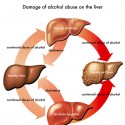Challenges in Drug Treatment
No matter what you do, no matter how hard you try, there will still be challenges in drug treatment that can cause some bumps in the road. Even the most dedicated, most willing and most ready to get sober individual will find drug treatment to be a challenging process that takes strength to carry on—but this should not be reason to give up hope! From the day that you enroll into a drug treatment center until the final days when you are released and you being a quality aftercare program, take each challenge with a stride and know that everything you are doing is for an excellent cause—after all, you will be sober and clean in the end!
Some of the most difficult challenges that you may face along the way when you decide to seek help for a drug addiction include:
- Coming up with a way to pay for drug treatment
- Making adjustments to feel comfortable in the drug treatment environment
- Learning how to deal with others in drug treatment including fellow patients as well as your counselors and therapists
- Coming to terms with your addiction
- Dealing with the problems or issue that are happening at home
Each of these situations can bring you to the verge of relapse so it’s important to stay strong, continue to push forward and keep the positive outlook that you will soon be past this addiction and on your way to a happy, healthy, sober new life.
Paying for Drug Treatment

There are many challenges in drug treatment, but support can help.
One of the most difficult challenges and one that often prevents people from seeking the help that they need for addiction is figuring out how to pay for drug treatment. What you may not realize is that there are financing options, insurance coverage options and that your friends or family members may be more than willing to help you out—all you have to do is ask.
Adjusting to Drug Treatment
You have probably spent that past months or even years focusing much of your attention on getting high, staying high and finding more drugs—that’s why one of your biggest challenges in drug treatment will be to adjust to the new environment and get used to not focusing your time on drugs. It may be difficult at first to wake up early, go to counseling, eat meals at regularly scheduled times and overall stay on track to doing things on schedule—but time will make this much easier.
Coping with Others
You may find that you don’t get along with everyone in your drug treatment program. There will likely be other patients in the program who hit a nerve with you and there’s even a chance that you will have some struggles with your counselor or therapist. If you feel like you are struggling to get along with others in drug treatment, consider asking a counselor for help and talking things out. Keep in mind that even outside of drug treatment you do not always have to like everyone you encounter—but you should be respectful!
Coming to Terms with Addiction
One of the challenges that many people have when they seek treatment for addiction is simply coming to terms with the addiction and with the problems that they addiction has caused. It can take time and you will likely have to talk with a counselor about this many times before you finally can accept that the addiction has caused problems, that you had some control over the outcome and that, although you cannot change the past, you can do better in the future.
Problems at Home
Often times, people who are in an inpatient drug treatment program are faced with the challenge of knowing that things are happening back at home and they have little control over what’s going on. You have to accept that things will go on outside of your control and that what matters the most is staying focused on your recovery so that you can make your way back home to help out, function properly and be a part of the family that you have.

